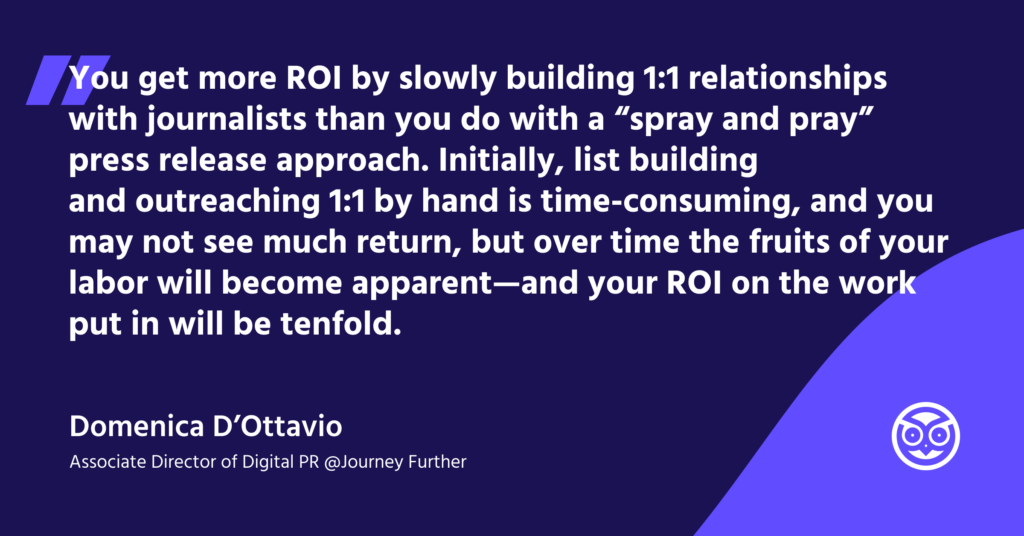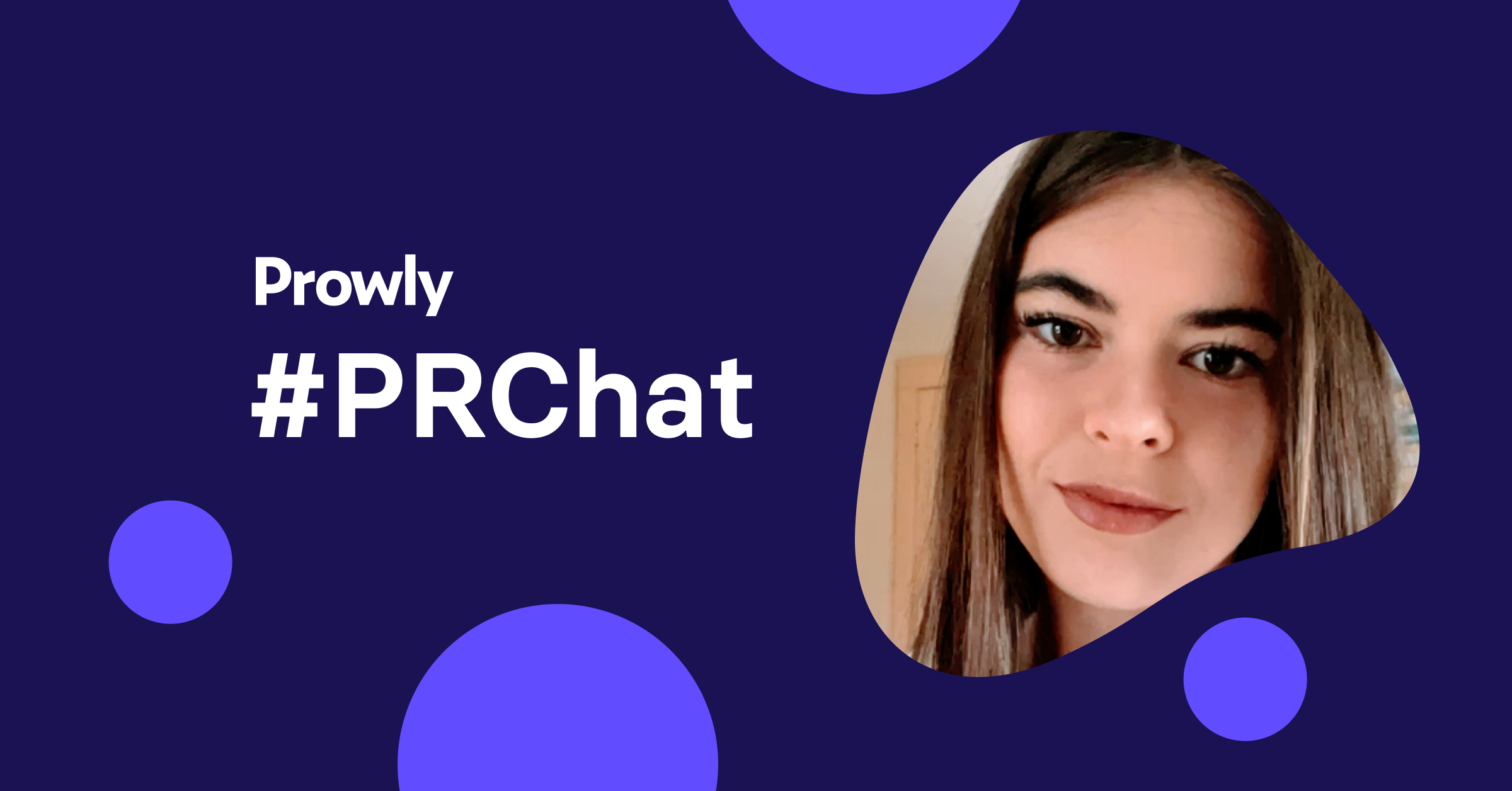Before the weekend begins and you forget about Public Relations for two days (or at least try to), it’s Friday - and Fridays are for new #PRChats. This time we’ll dive into the similarities and differences between PR and marketing with the one and only Domenica D’Ottavio. While she’s tried both, she gathered up top online resources and tools that can help you with your daily PR tasks.
You’ve worked in both digital PR and marketing. What made you choose to move back to PR after working in marketing for several years?
I began my career as a PR pro and switched to marketing a few years in. At that point, I had established an accomplishment driven career marked by earning clients’ press mentions on publishers across every topic area. But, after a few years of that the daily PR grind became monotonous, and I found myself losing interest in my day-to-day work. Earning a top-tier link didn't excite me anymore because I had done it many times. I was craving more depth in my career.
I moved to marketing for three years, and it was an incredible experience to start from the bottom again and learn an entirely new discipline. I already knew how to deliver work for clients, but I didn't understand how clients found us, how they chose vendors to work with, and how our services fit into their overall organic growth plans.
Success in marketing wasn't just about earning press. Instead, it's about brand positioning, building brand awareness, authority, and trust in the space, understanding our customers, and learning how to reach them. I worked under the incredible Amanda Milligan and it has been one of the highlights of my career to learn from her.
When I finally moved back to digital PR, what brought me back was the opportunity to be a specialist again. What I missed most from digital PR was leading a team, sharing knowledge, and being a part of the incredibly active and open digital PR community worldwide. My marketing experience has been nothing short of invaluable to my role as a Director leading our digital PR offering in the U.S. (alongside the brilliant Beth Nunnington!). We are in a growth stage in the business, and I apply the knowledge and experience I gained working in marketing to my role every day.
What is the most gratifying part of your job?
I'm really blessed to have the opportunity to build up the U.S. digital PR team from scratch. In the past, I've found I love leading, mentoring, and training a team. Watching someone succeed with the framework I've given them and allowing them the freedom to test their own strategies (“freedom within a framework,” as we call it at Journey Further) is one of the best feelings.
I love empowering my team to take everything they know and form their own approaches. Watching them trust their gut and be successful is one of the greatest parts of the job for me.
What is a commonly held belief in Public Relations that you passionately disagree with?
Anyone who knows me at all knows what I'm about to say.
You get more ROI by slowly building one on one relationships with journalists than you do with a "spray and pray" press release approach. Initially, list building and outreaching one on one by hand is time-consuming, and you may not see much return, but over time the fruits of your labor will become apparent – and your ROI on the work put in will be tenfold.

Do you use any software tools in your day-to-day work? (PR software, spreadsheets, video conferencing tools, etc.)
I couldn’t survive without Google Workspace, Slack, BuzzSumo, Ahrefs, and Grammarly!
Do you see any differences between doing PR in the United States and other countries?
There are several differences, but I will share the one that comes to mind.
In the U.S., journalists care a lot more about source and methodology than they do at most U.K. publishers I've seen. In the U.K., it seems like they don't let a lousy source get in the way of a good headline – but in the U.S., you need to have sound methodology and go as far as to ensure the data you present is significant and weighted.
Journalists tend to be more data-driven in the U.S., so if you want to tell a specific story, it's best to make sure there is some element of data to support it. If the data is sound and the headline is surprising, informative, or valuable to their readership, then you can be really successful.
What are some good online PR resources (websites, blogs, podcasts, webinars, etc.) that you follow?
Of course, the Prowly blog.
I love following these PR leaders on Twitter:
- Gisele Navarro @ichbinGisele
- Michelle Garrett @PRisUs
- Tonya McKenzie @TonyaMcKenziePR
- Tamara Sykes @baydiangirl
- Thierry Ngutegure @ThierryAlain (for data)
My colleagues Beth Nunnington and Robin Skidmore are always sharing really interesting insights and thought leadership pieces on LinkedIn and I take a lot of inspiration from them.
I look forward to reading these newsletters whenever they enter my inbox:
These are some really excellent PR podcasts worth a listen to really understand what journalists are thinking:
